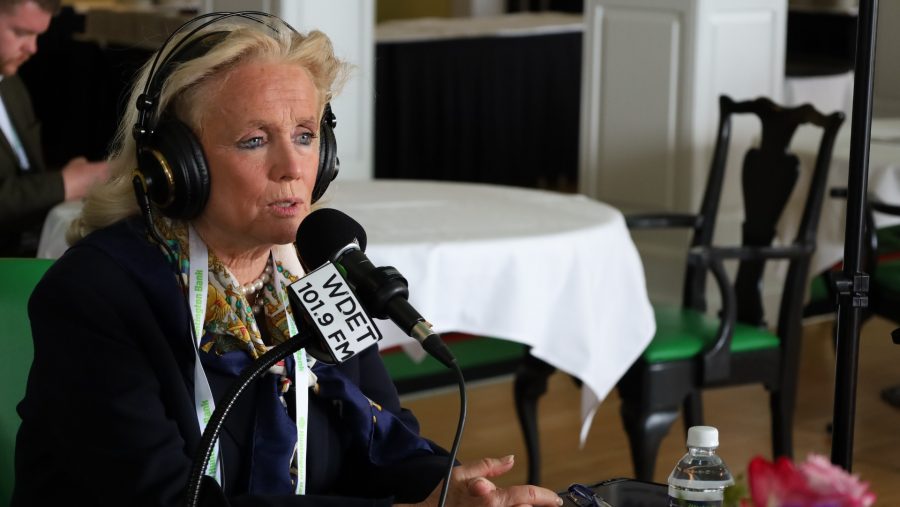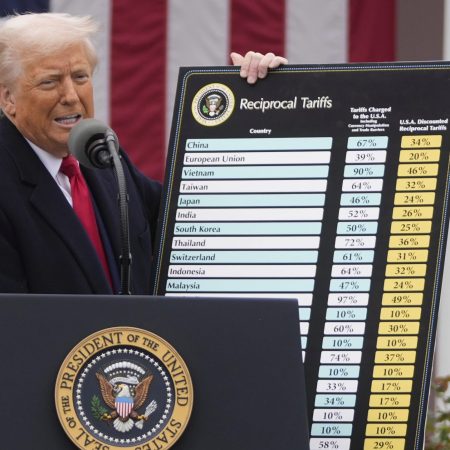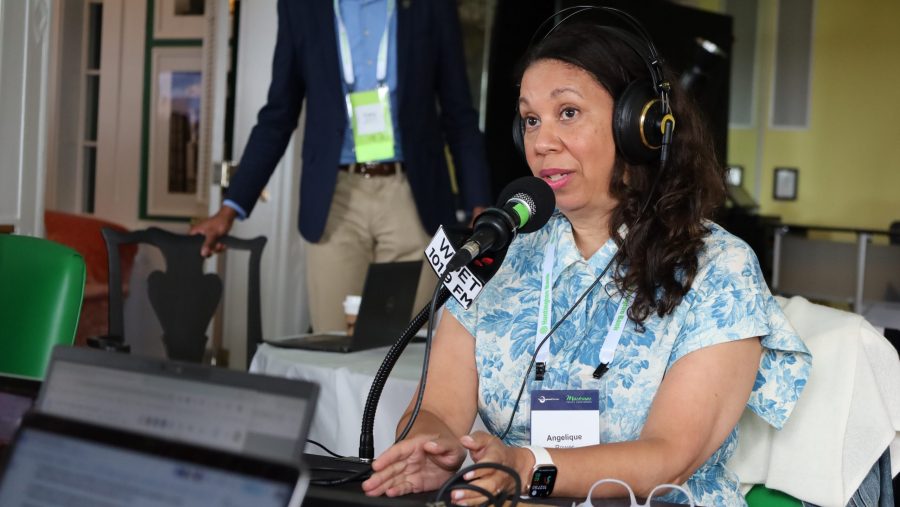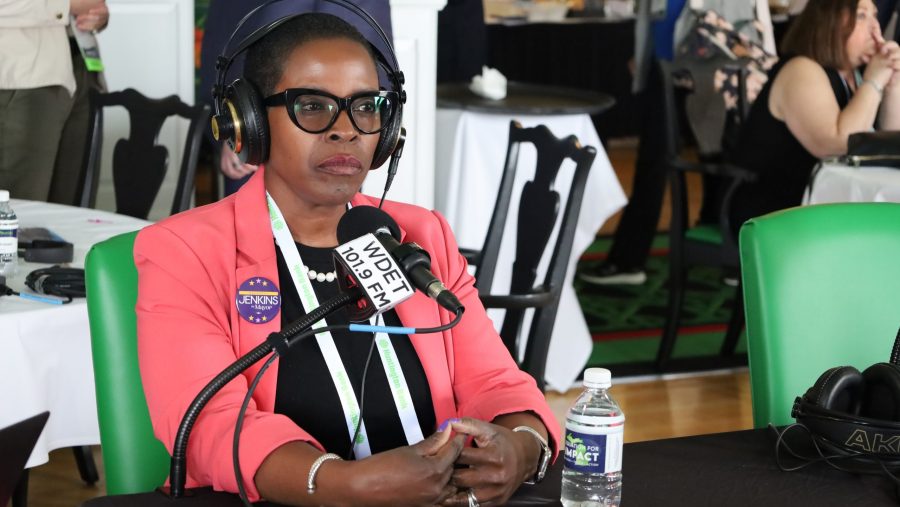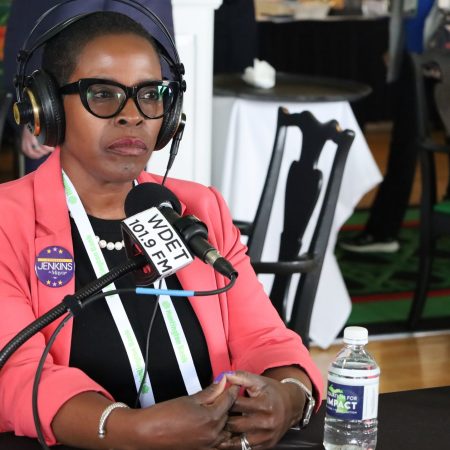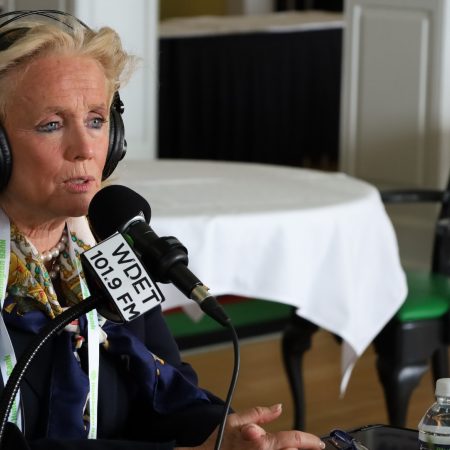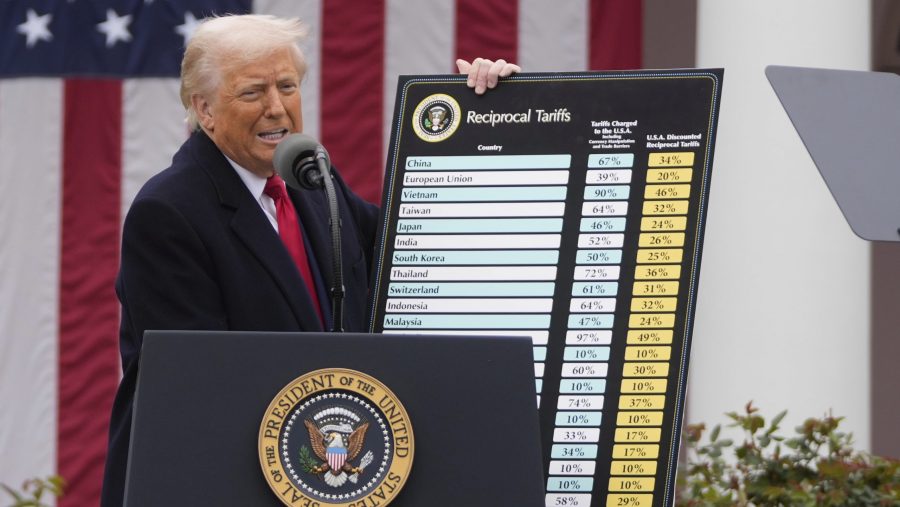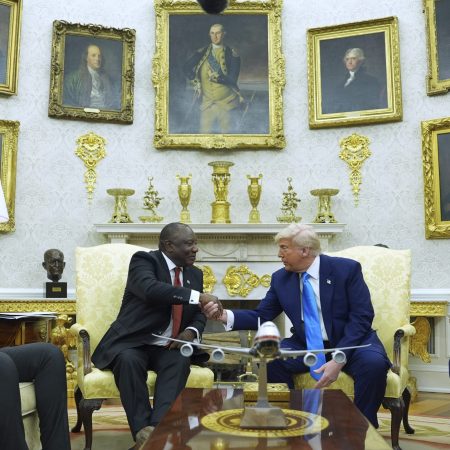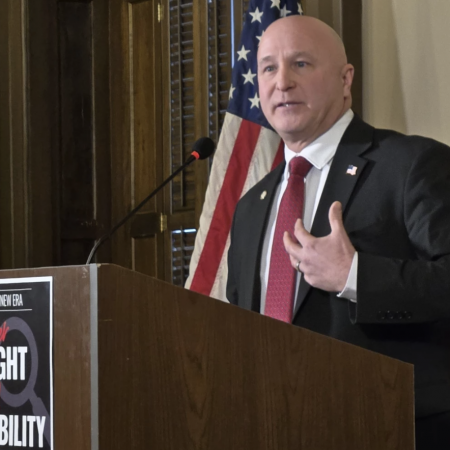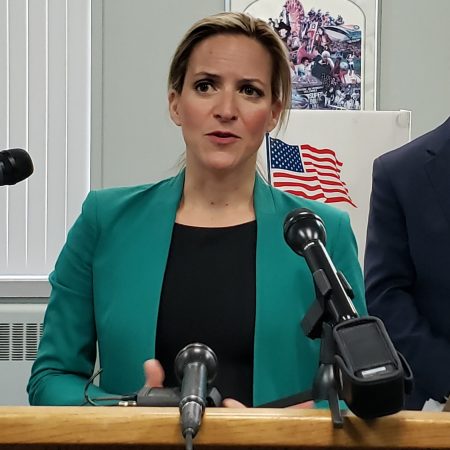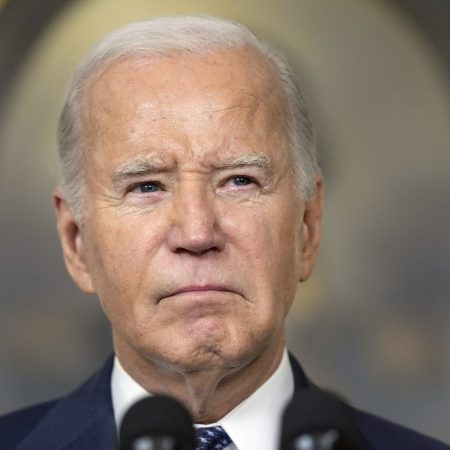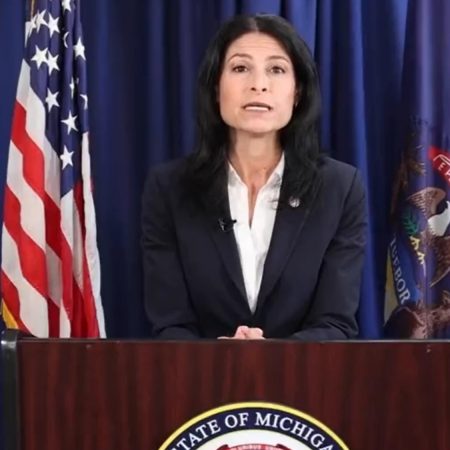WASHINGTON (AP) — President Donald Trump used a White House meeting to forcefully confront South African President Cyril Ramaphosa, accusing the country of failing to address Trump’s baseless claim of the systematic killing of white farmers.
Trump even dimmed the lights of the Oval Office to play a video of a far-left politician chanting a song that includes the lyrics “kill the farmer.” He also leafed through news articles to underscore his point, saying the country’s white farmers have faced “death, death, death, horrible death.”
Trump had already cut all U.S. assistance to South Africa and welcomed several dozen white South African farmers to the U.S. as refugees as he pressed the case that a “genocide” is underway in the country.
The U.S. president, since his return to office, has launched a series of accusations at South Africa’s Black-led government, claiming it is seizing land from white farmers, enforcing antiwhite policies and pursuing an anti-American foreign policy.
Experts in South Africa say there is no evidence of whites being targeted for their race, although farmers of all races are victims of violent home invasions in a country with a high crime rate.
“People are fleeing South Africa for their own safety,” Trump said. “Their land is being confiscated and in many cases they’re being killed.”
Ramaphosa pushed back against Trump’s accusation. The South African leader had sought to use the meeting to set the record straight and salvage his country’s relationship with the United States. The bilateral relationship is at its lowest point since South Africa enforced its apartheid system of racial segregation, which ended in 1994.
“We are completely opposed to that,” Ramaphosa said of the behavior alleged by Trump in their exchange. He added, “that is not government policy” and “our government policy is completely, completely against what he was saying.”
Trump was unmoved.
“When they take the land, they kill the white farmer,” he said.
Trump appeared prepared to confront Ramaphosa at the start of the meeting while journalists were present. Videos were cued up on a large TV set to show a clip of an opposition party leader, Julius Malema, leading an old anti-apartheid song.
The song has been contentious for years in the country because of its central lyrics “kill the Boer” and “shoot the Boer” — with Boer a word that refers to a white farmer. Malema, featured in the video, is not part of the country’s governing coalition.
Another clip played showed white crosses on the side of a road, described as a memorial for white farmers who were killed. Ramaphosa seemed baffled. “I’d like to know where that is, because this I’ve never seen.”
Trump kicked off the meeting by describing the South African president as a “truly respected man in many, many circles.” He added: “And in some circles he’s considered a little controversial.”
Ramaphosa chimed in, playfully jabbing back at a U.S. president who is no stranger to controversy. “We’re all like that,” Ramaphosa said.
Trump issued an executive order in February cutting all funding to South Africa over some of its domestic and foreign policies. The order criticized the South African government on multiple fronts, saying it is pursuing antiwhite policies at home and supporting “bad actors” in the world like the Palestinian militant group Hamas and Iran.
Trump has falsely accused the South African government of rights violations against white Afrikaner farmers by seizing their land through a new expropriation law. No land has been seized and the South African government has pushed back, saying U.S. criticism is driven by misinformation.
The Trump administration’s references to the Afrikaner people — who are descendants of Dutch and other European settlers — have also elevated previous claims made by Trump’s South African-born adviser Elon Musk and some conservative U.S. commentators that the South African government is allowing attacks on white farmers in what amounts to a genocide.
The administration’s concerns about South African policies cut even deeper than the concerns about white farmers.
South Africa has also angered Trump over its move to bring charges at the International Court of Justice, accusing Israel of committing genocide against Palestinians in Gaza. Ramaphosa has also faced scrutiny in Washington for his past connections to MTN Group, Iran’s second-largest telecom provider. It owns nearly half of Irancell, a joint venture linked with the Islamic Revolutionary Guard Corps. Ramaphosa served as board chair of MTN from 2002 to 2013.
Ramaphosa came into the meeting looking to avoid the sort of contentious engagement that Ukrainian President Volodymyr Zelenskyy experienced during his February Oval Office visit, when the Ukrainian leader found himself being berated by Trump and Vice President JD Vance. That disastrous meeting ended with White House officials asking Zelenskyy and his delegation to leave the White House grounds.
The South African president’s delegation included golfers Ernie Els and Retief Goosen, a gesture to the golf-obsessed U.S. president. Ramaphosa brought Trump a massive book about South Africa’s golf courses. He even told Trump that he’s been working on his golf game, seeming to angle for an invitation to the links with the president.
Luxury goods tycoon and Afrikaner Johann Rupert was also in the delegation to help ease Trump’s concerns that land was being seized from white farmers.
At one point, Ramaphosa called on Zingiswa Losi, the president of a group of South African trade unions, who told Trump it is true that South Africa is a “violent nation for a number of reasons.” But she told him it was important to understand that Black men and women in rural areas were also being targeted in heinous crimes.
“The problem in South Africa, it is not necessarily about race, but it’s about crime,” Losi said. “We are here to say how do we, both nations, work together to reset, to really talk about investment but also help … to really address the levels of crime we have in our country.”
Musk also attended Wednesday’s talks. He has been at the forefront of the criticism of his homeland, casting its affirmative action laws as racist against whites.
Musk has said on social media that his Starlink satellite internet service isn’t able to get a license to operate in South Africa because he is not Black.
South African authorities say Starlink hasn’t formally applied. It can, but it would be bound by affirmative action laws in the communications sector that require foreign companies to allow 30% of their South African subsidiaries to be owned by shareholders who are Black or from other racial groups disadvantaged under apartheid.
The South African government says its long-standing affirmative action laws are a cornerstone of its efforts to right the injustices of the white minority rule of apartheid, which denied opportunities to Blacks and other racial groups.
Following the contentious exchange in front of the cameras, Trump hosted Ramaphosa for lunch and further talks.
Ramaphosa, speaking to reporters following his White House visit, downplayed Trump’s criticism, adding he believes “there’s doubt and disbelief in (Trump’s) head” about his genocide charge. He insisted they did not dwell on Trump’s concerns about white farmers in their private conversation.
“You wanted to see drama and something really big happening,” Ramaphosa told reporters following his White House visit. “And I’m sorry that we disappointed you somewhat when it comes to that.”
–Reporting by Gerald Imray and Aamer Madhani, Associated Press. AP writers Seung Min Kim, Chris Megerian, Darlene Superville, Sagar Meghani and Ali Swenson contributed.

